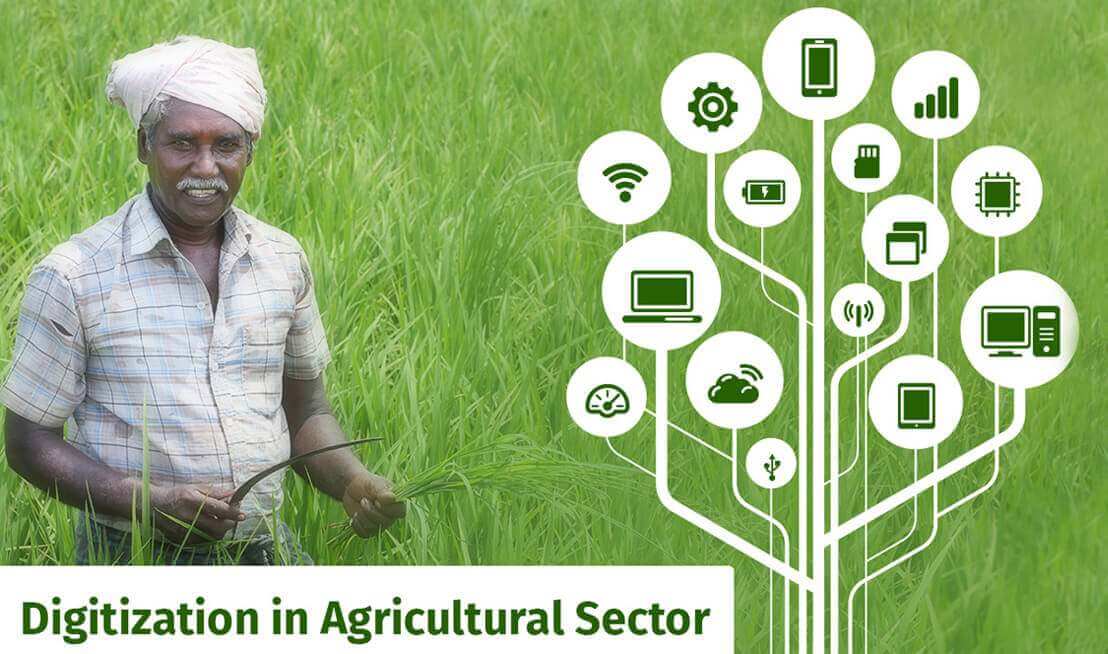Chief Revenue Officer, Ezetap Mobile Solutions Pvt. Ltd.
Sanjeeb Kalita | Chief Revenue Officer, Ezetap Mobile Solutions Pvt. Ltd.
Sep 14, 2018

Cash is the primary medium of monetary transactions in the Indian agricultural sector. It has been the foundation for moving goods, buying seeds, purchasing agricultural supplies and salary transactions in a lot of cases. In India, people working in agricultural and informal sectors account for 482 million* who earn cash incomes.
Also, this dependence on cash has kept most farmers off the financial grid resulting in little or no access to a reliable line of credit and an inefficient crop insurance coverage.
Issues associated with a dominant cash economy got highlighted with the recent demonetization of currency by the Indian government. Lack or inadequate availability of banking and payments infrastructure in semi-urban and rural areas brought the agriculture economy to a grinding halt. This, in-turn, has increased dependence on the informal money market where farmers are exploited.
In the recently announced Union budget-2017, Shri. Arun Jaitley, Finance Minister of India announced a slew of farmer friendly measures. Most measures were focused around making credit facilities available to farmers by disbursing 10 Trillion INR of farm credit in 2017-18 and increased allocation for crop insurance to 9,000 INR crores from 5,500 INR crores last year.
Primary vehicle for disbursing credit to farmers by the Government of India is through Kisan credit card (KCC) program and this has, to a great extent provided access to credit for farmers. This scheme is structured favorably if farmers pay-back loan within a year, and most farmers are forced to access informal money market to pay this loan, in case of fluctuations in price and productivity.
Another critical aspect, crop insurance payouts, in case of droughts and other issues aggravates the problem. This payout is based on an official classification of the impact of the village in concern and even on approval, payouts tend to take a long time to reach the farmer, of effectively increasing his/her dependence on the informal money market.
There is a genuine need to expand existing or provide new sources of credit and access to quality insurance with efficient payout mechanisms.
Indian fin-tech ecosystem is among the most vibrant in the world. Start-up companies like Ezetap are building products made in India, keeping Indian customers in mind. In an article published by Abhijit Bose, CEO and co-founder of Ezetap, he said: “India’s pro-active public policy is encouraging the private sector to participate and achieve government’s stated priority of financial inclusion and transparency. Recent announcements of government starting with demonetization is an example of this”.
Indian fin-tech companies can bring significant value to agriculture economy with their world-class software, hardware and data analytics capabilities. This co-operation between fin-tech companies and agriculture industry must be supported extensively and driven together.
This partnership can be a powerful force and supplement government efforts to move Indian farmers from financial obscurity to financial center stage.
To begin, we can focus this partnership to achieve following
1. Move farmers from financial off-grid to financial on-grid
2. Provide farmers with quality line of credit
3. Access to efficient crop insurance
First of, the block would be to create the financial or payment profile of Indian farmers by active promotion and adoption of digital transactions. Companies like Ezetap can build a financial profile based on farmer’s transaction spends and frequency.
This financial profile/identity linked to their Aadhar number can enable easy verification of credit worthiness for all financial institutions. This can strongly empower a farmer with financial identity and a strong role within the banking ecosystem.
For example, in most rural areas where customers do not have access to an ATM, products like Chota ATM (Cash @ POS) by Ezetap is their first experience.
In addition to existing banking infrastructure, new private lending institutions can serve on high risk opportunities neglected by traditional banks. This can add an entirely new set of options to farmers and lead to competitive products in the market.
For example, Ezetap offers its customers ready access to capital through its multiple partners. This means that when a farmer associates with Ezetap, he is immediately eligible to access quality line of credit.
Crop insurance is relevant to a farmer only if a farmer can get his/her payout relatively quick and in a hassle-free way. This is hampered today as most insurance companies are constrained by banking infrastructure in rural areas.
Here, mPOS solutions customized to the needs to crop insurance companies can enable collection of premium as well as disbursement of payments effortlessly. In a similar way, Ezetap has enabled multiple micro-finance institutions to give loans and collect EMI in rural areas.
Co-operation and partnership between the agriculture industry and fin-tech companies in India can eliminate over dependence of farmers on the informal money market and bring an entire generation of farmers within the formal banking/financial ecosystem.
Most importantly, it can remove seasonality/uncertainty of cash flow from the life of a farmer and make him completely self-reliant. This can be the beginning of another green revolution in India.
Give us a call at 1800 313 141516 or mail us questions at sales@ezetap.com to know about our Universal Payment Solutions and Payment Features today!
Chaitali Bhatia | Director – Marketing Ezetap Mobile Solutions Pvt. Ltd.
Bhaskar Chatterjee | Head of Products
T. Venkata Chalapathi | Principal Architect, Ezetap Mobile Solutions Pvt. Ltd.
Get in Touch